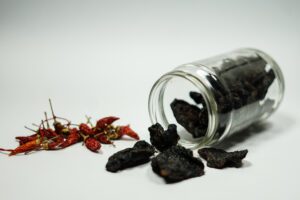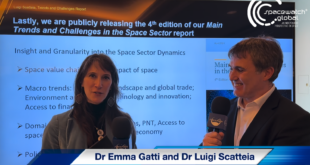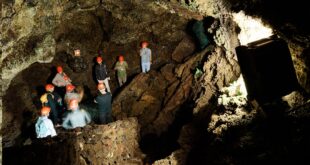By Christina-Ariadni Valagkouti

What is the easier way to make someone love you? According to many cultures, “the way to someone’s heart is through their stomach”. This proverb reflects how much value humans assign to food. While the saying’s use takes a somewhat comical tone, there are truths in it that can be applied to making the space sector more inclusive.
The Space Food Dilemma: Appropriate vs. Adequate
One of the biggest challenges for manned space missions is to ensure that there is enough food for the crew. This is a bilateral problem – on the one hand, we need food items that are appropriate for space flight. So far, we have figured out processes to make the food last longer, take up less space, require little crew time, and behave the way we want it in zero gravity. But, to do so, we have overlooked the other side of the problem – adequacy.
There are so many things to learn; every culture has found a different way to preserve food, combine the necessary nutrients, and bring out the different flavours.
Adequacy does not have to do only with quantity. Adequacy includes “satisfaction”, and, to achieve this, quality is equally important. Unfortunately, there’s a trade-off to consider: fresh, palatable food is too microbiologically unstable and too bulky for spaceflight missions (1). To meet the standards of practicality, food has to be processed beyond recognition. Despite the obvious advantages, sacrificing the pleasure derived from food consumption can have adverse effects. Malnutrition is a common condition among astronauts for this exact reason. Monotonous food leads to a reduction of appetite, which is already compromised by spaceflight-induced motion sickness, the lack of sense of taste, and the digestive issues that astronauts experience (2,3). The crew morale can also suffer from the practice of heavy processing: it would be preferable for the crew to be able to consume favourite foods that remind them of home. These “comfort foods” carry a sentimental value that triggers feelings of relaxation and elevation (4). Astronauts from diverse cultures can be even more affected, as the majority of the pre-packaged food items are American and Russian. Helping astronauts maintain a healthy relationship with food is of paramount importance for the success of a mission and their safe rehabilitation, and food diversity is the way to go.
Achieving Food Diversity

To achieve the food diversity that would reduce “menu fatigue”, we need to turn to food practices from every culture. There are so many things to learn; every culture has found a different way to preserve food, combine the necessary nutrients, and bring out the different flavours. Additionally, there is an overwhelming amount of scientific evidence on the benefits of the kitchen of the Blue Zones, places where a large amount of the population are centenarians. Blue Zones can be found all over the world; in Italy, Japan, California, Costa Rica, and in my home country, Greece. Take for example the sundried vegetables and herbs my grandma used to prepare, adding them not only to food but also to medicinal teas. Easy to store, slow to spoil, and full of antioxidants, they are part of the diet that helps the people in Ikaria island live over 100 years (5). Want another example? Miso, known to be beneficial for intestinal functions (6) and non-perishable, is an integral part of the Japanese centenarians in Okinawa.
The Path to Inclusivity
The lessons learned from cuisine representation, and their application to human spaceflight, can pave the way to achieving another target of the space industry: inclusivity. Providing food options for various diets (e.g. vegan, kosher, halal) and taking into account specific allergies or dietary restrictions (e.g. nut allergy, gluten intolerance), will make more people feel represented, empowered, and not excluded. The impact this can have on society becoming more inclusive overall should not be underestimated.
The impact of food diversity in space can have on society becoming more inclusive overall should not be underestimated.
However, when talking specifically about space, developing astronaut food for people of different beliefs, backgrounds, and lifestyles means providing opportunities for those people to get involved in the next phase of space exploration. Especially with the interest in commercial space flights and space tourism rising, the industry should open itself up and facilitate people to experience it, regardless of dietary preferences. But, also on a professional level; having people know that their diet is not something that will hold them back, will certainly lead to applications from motivated, talented people that would otherwise not be considered. Besides, the space industry is a field with complex problems, that require great imagination, innovation, and interdisciplinary to overcome. We are going to need everyone, and everyone needs to feel included.
Sources:
1.Tang, H., Rising, H. H., Majji, M., & Brown, R. D. (2021). Long-Term Space Nutrition: A Scoping Review. Nutrients, 14(1), 194. https://doi.org/10.3390/nu14010194
2.Laurens, C., Simon, C., Vernikos, J., Gauquelin-Koch, G., Blanc, S., & Bergouignan, A. (2019). Revisiting the Role of Exercise Countermeasure on the Regulation of Energy Balance During Space Flight. Frontiers in physiology, 10, 321. https://doi.org/10.3389/fphys.2019.00321
3.Taylor, A., Beauchamp, J., Briand, L., Heer, M., Hummel, T., & Margot, C. et al. (2020). Factors affecting flavor perception in space: Does the spacecraft environment influence food intake by astronauts?. Comprehensive Reviews In Food Science And Food Safety, 19(6), 3439-3475. doi: 10.1111/1541-4337.12633
4.Spence, C. (2017). Comfort food: A review. International Journal Of Gastronomy And Food Science, 9, 105-109. doi: 10.1016/j.ijgfs.2017.07.001
5.Chrysohoou, C., Lazaros, G., Skoumas, J., Oikonomou, E., Zaromytidou, M., & Vogiatzi, G. et al. (2018). P5412Life long nutritional habits with high antioxidants consumption combined with less energy intake reduce cardiovascular disease morbidity and mortality in elderly adults. IKARIA study. European Heart Journal, 39(suppl_1). doi: 10.1093/eurheartj/ehy566.p5412
6.Dimidi, E., Cox, S. R., Rossi, M., & Whelan, K. (2019). Fermented Foods: Definitions and Characteristics, Impact on the Gut Microbiota and Effects on Gastrointestinal Health and Disease. Nutrients, 11(8), 1806. MDPI AG. Retrieved from http://dx.doi.org/10.3390/nu11081806

Christina-Ariadni Valagkouti is a nutrition scientist, constantly seeking projects that draw knowledge from as many fields as possible. With a BSc in Nutrition and Dietetics Science, an MSc in Molecular Nutrition and Toxicology, and an internship within the Space Medicine Team of the European Space Agency, she can enrich any innovative food project with insights on product safety and consumer needs. A strong voice for the potential of efficient food production systems to ameliorate food security and sustainability issues, especially for people in extreme conditions, she is raising awareness through multiple volunteer projects, and was recently recognized by the Space Generation Advisory Council as a “European Space Leader”. Currently, Connectomix.bio is trusting her to handle safety assurance projects and regulation training materials for companies that wish to use microorganisms in their products. Additionally, she is affiliated with the Dutch branch of “Gorillas”, on a mission to minimize food waste and ensure the highest quality for customers. Lastly, she supports the training of analog astronauts as the nutrition expert of Interstellar Performance Labs.





